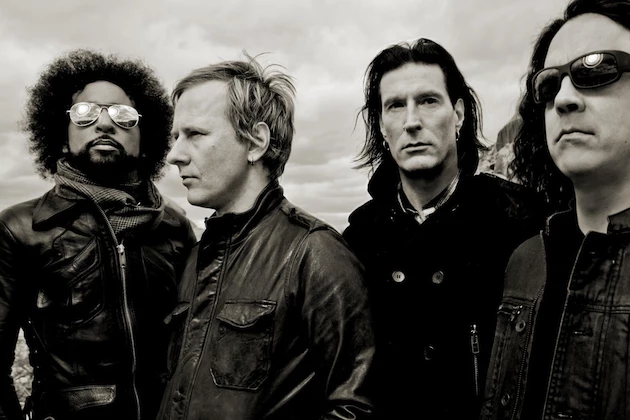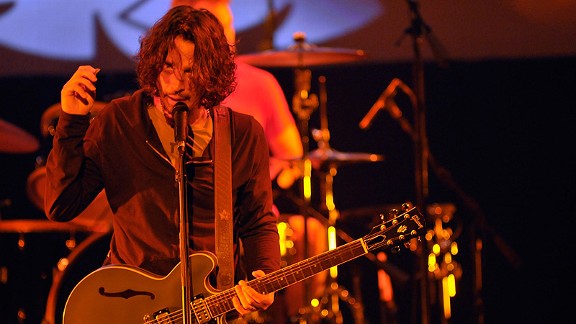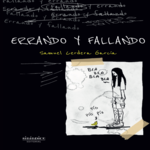Alice in Chains’ Jerry Cantrell + Sean Kinney Talk Festivals, ‘AIC 23′ Mockumentary + Rock Hall

Sacado de // From –> http://portalternativo.com y http://loudwire.com
Hablando con Loudwire, el batería de Alice In Chains, Sean Kinney, se ha referido al estado de la música en estos tiempos que vivimos y como ello afecta a las nuevas bandas.
Es algo más difícil estos días por como se ha devaluado así que quizá la gente no está tan dedicada porque no fue a la tienda a por ello. Hay millones de excusas pero ha perdido ese encanto y la mística y es más y más difícil como banda nueva.
Los próximos Led Zeppelin están tocando en algún sitio y nunca lograrán (el éxito) porque no hay infraestructura para ello. Nunca tendrán la oportunidad. La gente probablemente nunca los soportará lo suficiente como para permitir que crezca y se convierta en la banda que debería ser y eso es triste, y todos vamos a pagar el precio de eso y probablemente será demasiado tarde antes de que la gente se dé cuenta.
Eso es triste porque me encanta la música, a ti te encanta la música, a todos os encanta pero damos cosas por sentadas. Está en el ascensor. Está en todos lados. Y cuando hacemos eso nos estamos disparando en la cabeza por no apoyar lo que amas. Eso me entristece. Yo quiero oír esa nueva banda.
Además, esas bandas de rock, el rock no tiene el lugar que tuvo en las listas. (El sitio) es para toda esa gente del playback karaoke pero se ha hecho normal. Uno puede ver como ha cambiado. Era un delito capital, no podías ir a un concierto y que sonara una cinta habiendo pagado la gente 100 dólares para verte ahí haciendo el falso, eso era un crimen. Ahora parece que eso está bien. Vale, así son las cosas.
Eso es terrible, sabes. Y eso deja a tipos como nosotros que si tocamos todo de verdad en gran desventaja (risas) Nosotros tocamos y tal pero luego tienes a esa otra gente que sale, le da al play y es como, “Baila monito” y cantan y hacen ver como que (tocan).
Es chocante que sea aceptado porque pone a bandas como nosotros y Foo Fighters y la gente en contra pero eso es otra cosa que me da fuerza y me hace seguir adelante. Llevaremos la antorcha pero lo triste es que cuando todas esas grandes bandas para las que ahorrabas e ibas a fumar hierba e ibas a ver, esos conciertos de grandes recintos desaparecerán. Nadie puede con esos recintos porque están devaluando la música.
Ahora la única manera de juntar a esos fans es hacer un festival, es como el CostCo del rock y eso es triste. Los días de una banda que realmente te gusta y que se acompañe por un par de bandas guays que te pueden gustar, esos que moldearon nuestras vidas van a desaparecer.
Recuerdo esperar en conciertos y esperas ver un destello de la banda cuando entra el concierto y parece que esos días pasan a la historia y jode un poco.
IN ENGLISH
Alice in Chains are back with the new album, ‘The Devil Put Dinosaurs’ here and co-vocalist and guitarist Jerry Cantrell and drummer Sean Kinney recently took the time to speak with Loudwire.
In the first part of our interview, we went in-depth on the new album and its current singles. In the second portion of our conversation with Cantrell and Kinney, they talk about the humorous ‘AIC 23‘ mockumentary they shot to promote the album and their heavy presence on the festival circuit this spring and summer. In addition, Cantrell speaks specifically about being part of Heart‘s Rock and Roll Hall of Fame induction festivities and his annual fantasy football league. The interview can be read below:
The ‘AIC 23′ mockumentary was pretty awesome. How much fun did you have shooting that and who had the best time with their character?
Sean Kinney: [laughs] It’s probably one of the greatest marketing tools of all-time. And by tools, I just mean it’s us making tools of ourselves. But that was fun.
Jerry Cantrell: I think we all had a great time with our characters. It was a great job. That came out of about five or six conference calls of, ‘What the f— do we do [to promote the new record]?’ and we all just started riffing, flushed s— out , made up our characters and a loose idea of what we wanted to do. We did that same thing with the NONA tapes. That’s all ad-lib s—. You get a great idea and just f—ing go.
Same thing with this. We zoned in our characters and there was a couple of changes early on, and we zoned in on what we should do. We got Peter involved and he’s a very creative guy and also Earl, my buddy Earl Brown, who’s a great character actor. He played a great part in wrangling us all together too. So it was a pretty fun thing to do. And the f—ing makeup guy, wow!
SK: Trying to pull that off in real time without people who cared, you couldn’t afford to do these things. These aren’t like amateur guys coming around.
JC: Yeah, nobody made money on that. It was just kind of a labor of love and we got some cool and talented people to help us make it. [I remember] those EPKs became a marketing tool back in the ’90s and we were early in on that and I remember the record company saying, ‘It’s an electronic press kit. Go talk about yourself.’ And we’re like, ‘I’m not gonna do that.’ So we got the money and told them we were gonna do that, and then told them, ‘Oh it’s heavy, it’s a departure,’ all this stuff that everybody says, and we went and took that made that ridiculous thing and gave it to them. They were f—ing pissed. They were livid, telling us we wasted money and what the hell did we do and we were like, ‘This is it!’ And it turned into like a little cult thing and then they rallied around it and were like, ‘We should sell this.’ Noooo. We were totally against it.
It’s just one of those things, we always get the, ‘You’re music’s so dark and you’re so depressed,’ but we’re just not. It’s an outlet and it’s a mirror of reality life stuff, but in general we’re pretty light guys for the most part.
JC: You’ve gotta have a pretty strong sense of humor to go through life — period. And the stronger one you have, the better the life is. We like to have fun and the last time we got made up in Kiss makeup and went and did our laundry and s—. That was kind of a cool way to talk about some s— that was really hard to talk about and take the piss out of ourselves at the same time. You’ve gotta have a sense of humor, not only about the world, but about yourself, you know.
Getting out on the road this spring, ‘Phantom Limb’ sounds like that’s gonna be a great track live from the album.
JC: Yeah we’ve been running that.
What songs off the new record are you most excited to get out there for audiences?
JC: Well ‘Hollow’ and ‘Stone’ we’ve been running out there and ‘Phantom’ leaked, so we’ve been playing that too. You know there’s an element that really sucks, but because you have so little control over your s— anymore, you can’t even control the time your s— comes out. People rip it off and you lose all your impact. It’s hard, it’s really hard. And one of the lamer things is back in the old days, you could work new material live. And it would stay that way and it would be special and maybe someone would record it and it would get passed around in some basements, but now when you pass things around it goes worldwide and it’s usually a s—ty version of it, crappy little cellphone version of it, so unfortunately our hands are kind of tied.
We’d like to do more of it, but because things are not special anymore and things get out and there’s crappy versions of it, you’ve gotta hold onto as much as you can. So we probably won’t play a majority of that record until it gets leaked or is in people’s hands so they have the proper version of it to base the thing off of.
SK: Yeah, we’d like to play it all right now. I remember touring on ‘Facelift’ and we played most of ‘Dirt.’ We were writing ‘Dirt’ on the road and working it out, and it would leak out a little bit, but it wasn’t like it is today. It was like the tens of millions of people today just judging it and do what they do and then just disposing of it. So we have to wait it out.
JC: It changes how you operate and it kind of sucks.
I know there were festivals back in the day, but the sheer amount now is pretty astounding and I just wanted to get your reaction to not only playing a majority of the top rock festivals this year, but also being a headliner for them, as well.
SK: It’s a good way to do it. You have to realize, it’s an economy issue. The economy’s tough and people just don’t have the money to go to shows once or twice and month and see the bands. And the other thing is because of people taking your albums, you’ve got more bands touring as it’s the only way they can try to make a living. So there’s the same amount of venues to play, but more people trying to squeeze in there. So, for fan-wise, festivals are a great idea. It’s like the Costco of rock! [laughs] I’m not married and I don’t have kids, but I could save a lot of money if I bought five f—ing gallons of mayonnaise right now. I don’t eat the s—, but what a deal. So why turn down this deal?
But I think it’s a cool thing and Europe’s been doing that forever and that’s kind of how their model works and they have a long heritage of doing it. They do it well and they do it for days on end, where I don’t know if America is responsible enough to let people live in tents for three days without doing some ridiculous s—.
JC: Somehow they keep it together pretty well.
I just think it’s awesome the respect shown that you guys are top billed at every one of these events.
JC: Yeah, it’s nice, you know. It doesn’t suck and it’s not lost on us. We’re very proud of what we do and we know we’re lucky to do it and to have the opportunity to pretty much do it the way we want to do it and be able to continue the story.
The whole thing about doing this that I never forgot or Sean or the guys is that this is important to us. It’s important for us personally to do it because we were inspired by other guys who did this, so maybe by doing that you’re inspiring some other people to do it as well. While that’s not one of the main thoughts in the forefront, that is a by-product. It’s a cool and natural thing. As long as it feels good and we continue to make good music, we’ll continue to do it.
SK: People are up against it and it’s a little harder these days because of how it’s been devalued, so maybe people aren’t as personally invested in it because they didn’t go to the store to get it. There’s a million excuses why, but it’s kind of lost that luster and the mystique and it’s tougher and tougher as a new band. The next Led Zeppelin is playing somewhere and they’ll likely never make it because there’s no infrastructure for it. They’ll never get a chance. People will probably never support them long enough to let them grow into the band that could be, and that’s a sad thing, and we’re all going to pay the price for that and it’ll probably be too late before people realize it. That’s a sad thing because I love music, you love music, we all do, but we all take it for granted. It’s in the elevator. It’s everywhere. And when we do that we’re all just shooting ourselves in the head by not supporting the thing that you love. That really kind of saddens me. I want to hear that new band.
On top of that, these rock bands, rock doesn’t hold the place it did on the charts. It’s these lip-synching karaoke people, but it’s become okay. You can see how it’s changed. It used to be a cardinal foul, you couldn’t go to a concert and have a tape on and people pay $100 to sit there and watch you fake your s—, that was a crime. It’s totally fine now, apparently. Okay, that’s the way it is. That’s horrible, you know. And it makes guys like us who really play everything, we’re at a huge disadvantage [laughs]. We actually play and stuff and you have these other people come out, hit the play button, and like, ‘Dance monkey,’ and they sing and they act like it.
JC: It sounded like the record. That’s because it was the record. [laugh]
SK: It’s shocking that it’s acceptable because it puts bands like us and the Foo Fighters and people against it, but that’s another thing that kind of fuels me and keeps it going. We’ll hold the torch, but the sad thing is when Metallica and all these big bands put on these concerts that you would save up for and smoke weed and go see, those arena shows are going away. Nobody can hold those rooms, because they devalue the music. Now the only way you can get those fans together is to have a festival, have the Costco rock, and that’s sad. The days of a band you really like and they have a couple of cool bands they’re going to turn you onto, those shaped our lives and it’s going away. I remember waiting at shows and you hope to catch a glimpse of the band as they’re going into a show and it seems like those days are going away and it kind of sucks.
And I wanted to ask before we finish, I know you have an extensive history with Heart. Can you talk about what it meant to have a chance to play at the Rock and Roll Hall of Fame for their induction?
JC: I’m just really happy for them. It’s about f—ing time. What a great band, an important band for so many reasons. First off, the straight-up musicianship-wise, the legacy of songwriting, and two women holding their own against any f—ing dudes in rock and roll and blowing them off the f—ing stage. They’re beautiful and they’re just great people and I’m just very happy to see that. I’m honored to even be asked to be a part of that.
And I’m surprised they weren’t in the first time around, so it’s definitely due.
SK: I don’t really know how it works, who picks it or what it means, but when you see people like Deep Purple, Rush, Kiss, you figured they should have already been in there. But it’s like Madonna is. What? I don’t know how it makes sense and I’m pretty sure most of these musician think the same way we probably do.
We didn’t get into this to win trinkets and awards. It’s not even in our mind. You received the Dalai Lama statue for the best whatever.
JC: But at the same time it is nice to be acknowledged that you did something.
SK: But that’s not really the focus. How do you win one of these? Well you have to write the right song. But if anyone deserves it, they do. And this year is really cool cause [Heart] and Rush got in. So that’s really cool.
Also, just wanted to throw this in, but love what you do with the fantasy football league each year.
JC: Oh thanks. Yeah it’s something that me and Mike [Inez] like to do and a lot of our friends help out with that. We come up with about 10-12 grand every year with the ten of us auctioning off some stuff. It’s fun. Mike got me into it and I didn’t really give a f— about it, but I am a huge football fan and Mike and I are the only guys in the band with any interest in sports at all and I’m pretty myopic. I’m really just interested in football, since we lost our basketball team to Oklahoma … but it’s something that was started doing with Mike and it turned into something we could do and actually have fun with and give to some charities, so that’s it.



